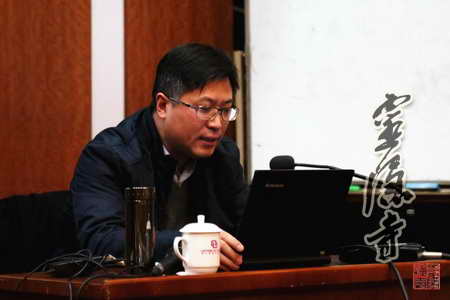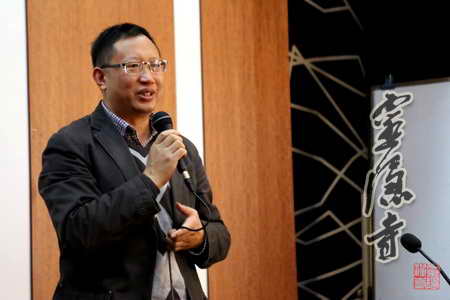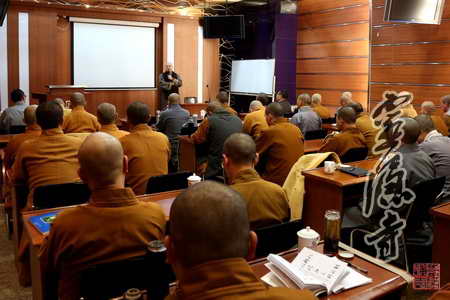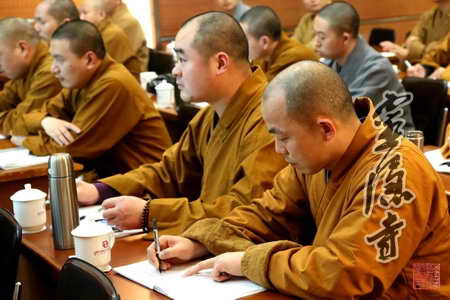


编辑:LY-Temple 日期:2013-12-29 08:36

State Administration for Religious Affairs Deputy Chief Liu Wei with focused topic

Guo Qingye, Chief of Hangzhou Municipal Bureau of Ethnic and Religious Affairs

Lecture Hall at Qinghua University

Dharma Masters of Hangzhou Temples in Lecture hall
There has long been the misunderstanding: advocates of worldly Buddhism do not emphasize religious practice, that only traditional Buddhism equates to cultivation. Buddhism’s Vinaya, Chan, Tantric, and Pureland schools essentially balance the diet, body, sleep, heart; gradually building the sense of purity, tranquility, and unrestrained states of serenity...
On the morning of December 18, Dharma Masters who oversee the tens of Hangzhou temples gathered at Qinghua University and scribbled away at their notes during the lecture "A Comparative Study of Religion and Culture" by Renming University’s Institute for the Study of Buddhism and Religious Theory Associate Professor, He Jianming. This lecture series featured professors of Beijing University, Qinghua University, and Renming University, spanning from December 15th to December 20th, with over forty representatives from Hangzhou Temples in attendance.
During the six-day lecture series, the Dharma Masters representing various Hangzhou Temples listened in on an array of topics from distinguished professors of these top universities: "Analysis: Sun Tzu's Art of War", by Professor Huang Pumin, "Chinese Buddhism’s Assessment and Development" by Professor Xuan Fang, "Current Issues of China Sea and China Japan Relations" by Professor Zhu Feng, "Contemporary Cultural Relations" by Professor Wang Xiaoqiu, "From Earth to the Universe", by Professor Wang Xiaofeng, "The Essence of Chinese Culture", by Liao Kebin, and Professor Yu Suyuan's "Development of Chinese Energy."
The lecture series was organized by the Hangzhou Buddhist Association, continuing to raise the scope for both Buddhist and cultural disciplines, broadening the perspective from which to interact with the teaching of Buddhism. Through this collection of lectures, hopes of dispersing this expanded scope seemingly took the form of a quest, from Beijing back to the tens of Temples of Hangzhou.